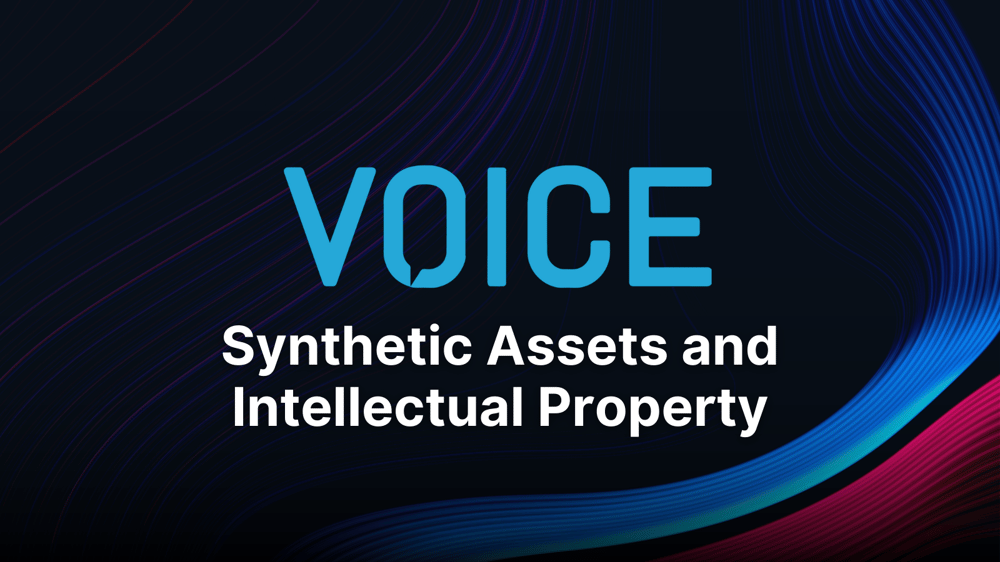Synthetic Assets and Intellectual Property
Modev News VOICE Summit 22-11-1 Modev Staff Writers 3 min read

We've reached a point in our technological development where we can now use AI to generate lifelike synthetic media, both visually and with audio. We've been using synthetic media in film and television for years now. But recent advances in AI have rendered the results more convincing than ever. And the same underlying tech also makes synthetic speech, or voice cloning, not just possible but indistinguishable from the original speaker's natural voice.
As AI continues its unstoppable march forward, the use of synthetic media will only grow. And that raises issues around intellectual property (IP). Who owns the synthesized utterances if I authorize an organization to clone my voice? Is it me? Is it the organization that hired me? Or is it the organization behind the tech to clone voices?
There's no clear-cut, one size fits all answer to that question because, as is often the case, the legal framework hasn't quite caught up with the state of technology. And so we're in a bit of a situation like the Wild West regarding the IP rights associated with synthetic assets.
But one leading company involved in synthetic assets has come up with its own framework, and it treats synthetic assets like any other asset you would happen to own—they're your IP.
That company is Veritone.
Veritone's Approach
Veritone is a leader in enterprise AI software, services, and applications, helping companies transform their operations to adapt to and embrace the digital frontier. They provide custom AI solutions to organizations to address their current and future challenges and enable them to navigate and thrive within the new business digital landscape.
Part of the above is producing synthetic speech models and digital visual personas. And as stated above, Veritone has drawn a line by saying that if it's your voice or if it's your digital visual persona then it's your IP. As such, it should be protected via asset management and licensing just like any other asset you own.
In essence, if you shouldn't be able to pirate a film, you shouldn't be able to pirate one's synthetic assets. And that's an issue Veritone takes to heart.
Case in point, cloned voices created by Veritone contain inaudible watermarks to weed out any fakes to protect a persons’ IP. Anyone interested in using the voice would need to opt into a licensing agreement with that individual—it's as simple as that. Veritone's IP lies in the underlying tech, not the utterances or images it produces.
Veritone Creates and Verifies (For You)
You provide the input when partnering with Veritone to produce digital media or personas for you or your brand. And they take it from there, developing content to your exact specifications. Once done, you retain complete ownership of how and when your voice or other synthetic media is used.
The above isn't just empty marketing. Veritone is serious about respecting (and protecting) their clients' IP. That's why it also offers the Veritone Verify solution. Veritone Verify provides tools to organizations who own rights to the media, or individual rights holders, who want to protect their content (IP). It delivers IP protection, secure asset management, content claiming, and monetization opportunities to help protect, manage, and monetize content.
That last point, "monetize content," is quite important and is in line with Veritone's talent-friendly approach to synthetic assets. Veritone Verify, backed by its longstanding Veritone Licensing solutions, includes licensing services to help you or your organization get a return on investment and ensure that your synthetic assets are seen and heard, enabling your digital presence and your brand to grow.
It’s a thoughtful approach.
Conclusion
AI-generated media can be more accessible to organizations for practical use cases while safeguarding the IP owner. In fact, having the talent retain IP rights on its synthetic media may be the only way to ensure the technology grows in a way that's beneficial to all parties involved.
Digital transformation is more than a buzzword; it's our future. We need considerate and realistic solutions like this to make it a good one.
We look forward to seeing if Veritone's approach pays off and seeing what clever new tech it releases in the future.
Modev
Modev was founded in 2008 on the simple belief that human connection is vital in the era of digital transformation. Modev believes markets are made. From mobile to voice, Modev has helped develop ecosystems for new waves of technology. Today, Modev produces market-leading events such as VOICE Global, presented by Google Assistant, VOICE Summit the most important voice-tech conference globally, and the Webby award-winning VOICE Talks internet talk show. Modev staff, better known as "Modevators," include community building and transformation experts worldwide. To learn more about Modev, and the breadth of events and ecosystem services offered live, virtually, local and nationally - visit modev.com.